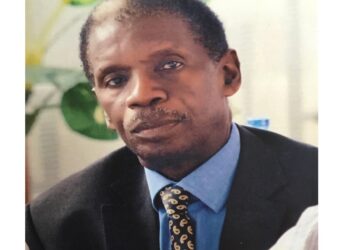Last week, the Electoral Commission announced its outline for the 2026 local government, parliamentary and presidential elections beginning June 2025 to select almost 3.3 million leaders, and so political parties and prospective candidates are expected to start, if not already gearing up. As expected, the National Resistance Movement (NRM), represented by the chairman of its Electoral Commission Fred Tanga Odoi promptly welcomed the development saying they were ready, especially after the recent update of the membership national register said to have an enviable number of eighteen million starting with sixteen-year-olds who will be eligible voters in 2026 out of 46 million Ugandans. That number may be impressive, however, there should be a big caveat, going by its history since 2005 when multiparty democracy was re-introduced.
While NRM and its lead candidate Yoweri Kaguta Museveni Tibuhaburwa has since 1996 won elections with a thumping majority, this has been declining over the years in overall votes scored and percentage of seats earned. The 2021 elections saw President Museveni swept off Buganda and Busoga two regions with huge voting population, and hitherto strongholds. The political minions from the National Unity Platform (NUP) also cleaned NRM out in Buganda’s parliamentary seats and local governments.
The NRM hasn’t had clean slate internal elections, usually marred by vendetta, and underhand politics that include open fraud, lack of credible voter register, and dependable election officials which often cascade into rigging, voter bribery, intimidation of rivals, and general violence. In the run-up to its 2020 primaries to select candidates, NRM abandoned its voter register because it was considered shoddy and announced that adults who were ‘known’ supporters be allowed to vote with minimal scrutiny which caused internal disquiet.
NRM, the self-claimed revolutionary party and harbinger of democracy, now stand accused of constantly undermining its own values with cronyism, patronage and corruption that have become endemic and failing public service delivery, which together has lowered the high standard and expectations created in 1986 when it first assumed power.
NRM has taken many steps to improve Uganda’s overall political, security, social, economic and development outlook with today’s impressive figures, greatly lowering poverty levels, and creating wealth, stock of public and private infrastructure, industries and jobs with forecasts now showing we could be graduating into lower middle-income status.
However, the loyalists appointed in government bureaucracy, incidences of authoritarianism, human rights violations creeping back, corruption, and unnecessarily digging in when negotiations with those demanding accountability could be better, are major drawbacks that should be dealt with to regain the high moral ground against opposition pretenders.
And with the rapid spread of education, urbanization, median wealth, digital mobile communication technology, and young people joining voting age, NRM should no longer get comfort that its stronghold is in the rural countryside. The just released population census shows that older people who tended to unflinchingly support NRM and President Museveni, are getting fewer through natural causes as years pass, and so NRM must cause a huge shift of youths between 16 and 25 into its membership and support base.
In the age of social media and its ‘influencers’ most of them arcane, plus thirty-eight-year record in office, NRM may find it very difficult to sell the stories of the abhorrent yesteryears of Milton Obote and Idi Amin Dada. The little story this week, of twenty-year olds itching for #March2Parliament who unapologetically denounced President Museveni not being their ‘Jjaja’ (Grandpa), must have touched many within NRM although few have the courage to openly admit.
One hopes that NRM scions won’t like to treat Uganda as their personal estates to pass over to their children and grandchildren for an inheritance. Ugandans expect that this time around, NRM will break with and absolve itself from the sad tradition of chaotic, fraudulent and often bloodstained internal polls’ history.
Do you have a story in your community or an opinion to share with us: Email us at editorial@watchdoguganda.com












